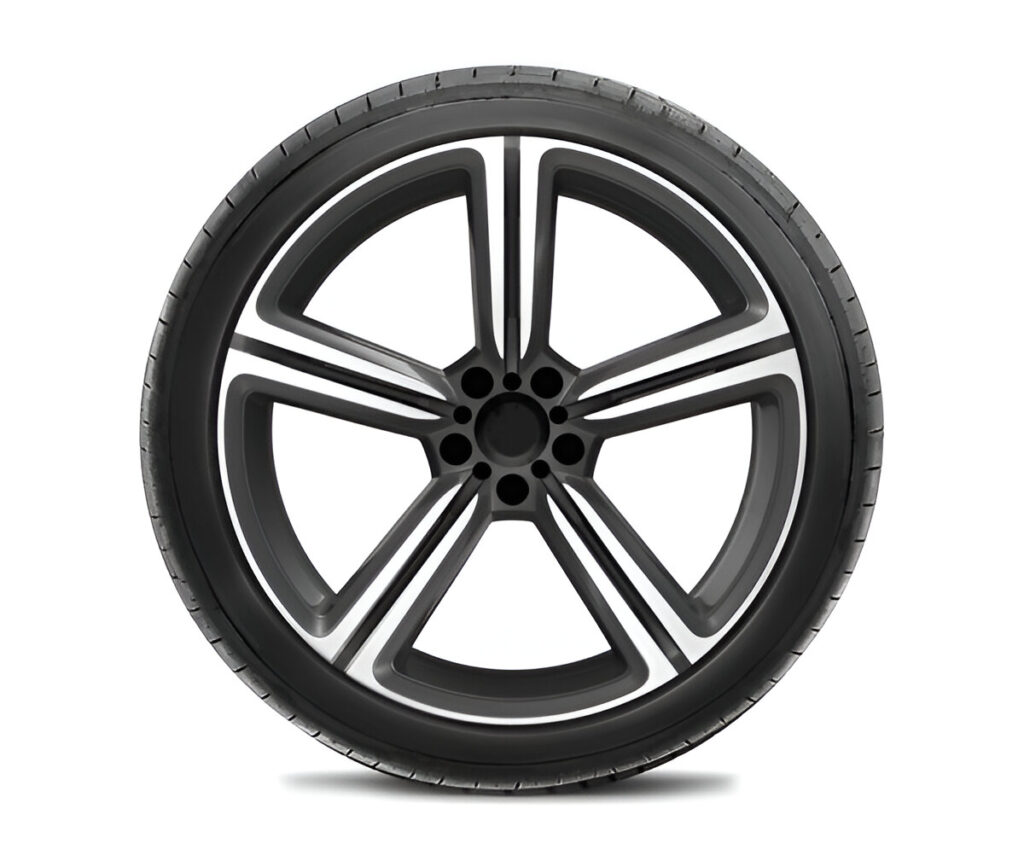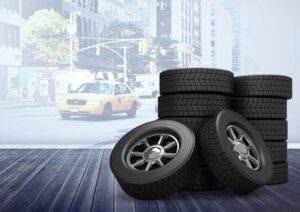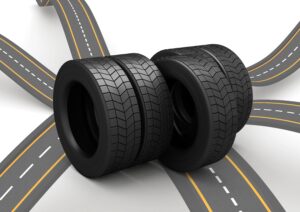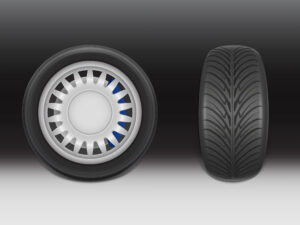What is Radial Tyre? Everything You Need to Know for Better Performance and Safety

If you’ve ever wondered what is radial tyre and how it can affect your vehicle’s performance, you’ve come to the right place. Choosing the right type of tyre is crucial for your car’s safety, handling, fuel efficiency, and overall driving experience. The radial tyre has revolutionized the way vehicles interact with the road, offering numerous benefits over traditional tyre types. In this comprehensive guide, we’ll delve into the definition of radial tyre, the advantages of radial construction, and explore why you should choose radial tyres for your vehicle. Whether you’re upgrading your current tyres or just curious about tyre technology, this article will help you understand what is radial tyre, its importance, and how it enhances your driving experience.
Definition of Radial Tyre
The first question that comes to mind is, what is radial tyre? A radial tyre is a type of tyre where the cords that make up the structure run perpendicular (at a 90-degree angle) to the direction of travel, from the bead to the tread. This design is fundamentally different from the older bias ply tyres, where the cords are layered diagonally.
In simple terms, the definition of radial tyre refers to the way these tyres are constructed to provide superior flexibility and strength. The radial construction allows the sidewalls to be more flexible, and the tread to remain stiffer, improving the tyre’s ability to grip the road. Michelin first introduced the radial tyre in 1946, and it quickly became the gold standard for modern vehicles.
Benefits of Radial Construction
So, what is radial tyre construction, and why does it matter? The benefits of radial construction are numerous, offering key advantages over bias tyres:
- Improved Heat Dissipation: Radial tyres are designed to dissipate heat more efficiently, which reduces the risk of blowouts and premature wear. This heat reduction helps prolong the lifespan of the tyre.
- Enhanced Flexibility: The flexible sidewalls of radial tyres allow for a more comfortable ride, as they absorb road shocks better. This results in smoother handling, especially during high-speed driving.
- Safer Driving at High Speeds: One of the key reasons what is radial tyre matters is because of its performance at higher speeds. Radial tyres offer better stability, making them ideal for highway and long-distance driving. Their construction ensures that the tyre maintains better contact with the road, providing enhanced safety.
Difference Between Radial and Bias Tyres
When looking into what is radial tyre, it’s important to understand the difference between radial and bias tyres. Here’s a closer comparison:
- Construction Differences: The most significant difference between radial and bias tyres is the construction. Radial tyres have cords running at right angles to the direction of travel, while bias tyres have cords running diagonally from bead to bead. This difference affects the tyre’s performance, flexibility, and durability.
- Comparative Performance:
- Radial tyres provide a smoother, more comfortable ride. They are also more fuel-efficient due to their reduced rolling resistance.
- Bias tyres, on the other hand, are better for rugged, off-road conditions. Their construction makes them stronger and more durable, but they tend to be less fuel-efficient and offer a rougher ride.
In general, what is radial tyre construction leads to superior performance on paved roads, making it the choice for most modern vehicles.
Radial Tyre Advantages
Now that we understand the definition of radial tyre, let’s dive deeper into the radial tyre advantages:
- Long-lasting Durability: Radial tyres are known for their exceptional durability. Their design ensures more even wear, which helps them last longer than bias tyres.
- Superior Road Traction and Stability: Radial tyres offer better road contact and stability. Their enhanced tread and flexible sidewalls help improve road grip, especially during sharp turns or wet conditions.
- Fuel Economy: Thanks to the lower rolling resistance, radial tyres help increase fuel efficiency, making them an excellent choice for those looking to reduce fuel consumption while driving.
The radial tyre advantages make it an ideal option for everyday driving, from city commutes to long-distance highway journeys.
Durability of Radial Tyres
One of the standout features of radial tyres is their durability. So, what is radial tyre in terms of longevity? Radial tyres are designed to withstand the wear and tear of everyday driving while offering superior resistance to punctures and blowouts. Their durable construction ensures that they last longer than bias tyres, which are more prone to wear and damage.
With regular maintenance, such as proper inflation and rotating tyres, radial tyres can last up to 40% longer than bias tyres. This makes them a more cost-effective option over time, despite their higher initial cost.
Cost of Radial Tyres
While you may wonder about the cost of radial tyres, it’s important to note that they are typically more expensive than bias tyres upfront. However, when you consider the long-term benefits, such as durability and improved fuel efficiency, they are a worthwhile investment.
The cost of radial tyres is justified by their long-lasting performance and fuel economy. Over the course of the tyre’s life, the savings on fuel and the reduced need for replacements make radial tyres a more economical option in the long run.
Usage of Radial Tyres
So, who should choose radial tyres? What is radial tyre usage in today’s world? Radial tyres are recommended for a wide range of vehicles, including:
- Modern Cars and SUVs: Radial tyres are ideal for city driving, highway cruising, and performance cars. Their ability to maintain road contact and provide stability at high speeds makes them a popular choice for everyday vehicles.
- Light Trucks: For light trucks that aren’t used for heavy-duty off-roading, radial tyres provide a good balance of durability, fuel efficiency, and road grip.
However, radial tyres are less suited for heavy-duty off-road vehicles or vintage cars that were designed for bias tyres. If you need a tyre for tough, off-road conditions, a bias tyre may still be the better choice.
Why Choose Radial Tyres?
So, why choose radial tyres? The answer lies in their comprehensive benefits, including:
- Safety: Radial tyres are safer because they offer better traction and stability, reducing the risk of skidding and improving control over your vehicle.
- Fuel Efficiency: The reduced rolling resistance of radial tyres means better fuel economy, helping you save money on gas.
- Performance: Whether it’s for city commuting, highway driving, or long road trips, radial tyres provide a smoother, more comfortable driving experience, making them the ideal choice for modern vehicles.
The superior construction of what is radial tyre provides enhanced safety, performance, and long-term value for vehicle owners.
Upgrade Your Tyres with KwikFix Auto
Looking for the best deals on radial tyres? Explore our extensive collection at KwikFix Auto. We offer a variety of top-tier brands like Michelin, Bridgestone, and Goodyear. Visit our store in Mumbai or browse online to find the perfect fit for your vehicle.
Conclusion
To wrap up, understanding what is radial tyre and the benefits it offers is crucial for anyone looking to improve their vehicle’s performance. Radial tyres provide better durability, superior traction, and improved fuel efficiency, making them the top choice for modern drivers. Whether you’re upgrading your tyres or simply learning about their benefits, radial tyres offer significant advantages over other types.
Frequently Asked Questions (FAQs)
Q1. What is radial tyre?
A1. A radial tyre is a type of tyre where the cords run perpendicular to the direction of travel, improving road grip, fuel efficiency, and durability.
Q2. How does a radial tyre differ from a bias tyre?
A2. Radial tyres have cords running at a 90-degree angle to the direction of travel, while bias tyres have diagonal layers of cords. Radial tyres offer better road stability and are more fuel-efficient.
Q3. What are the benefits of radial construction?
A3. The benefits of radial construction include improved heat dissipation, better flexibility, and enhanced safety, especially at high speeds.
Q4. Why are radial tyres considered more durable?
A4. Radial tyres have stronger tread and sidewall construction, resulting in more even wear and resistance to punctures and blowouts.
Q5. Are radial tyres better for fuel efficiency?
A5. Yes, radial tyres reduce rolling resistance, which leads to better fuel economy, making them a more cost-effective option in the long run.
Q6. What is the typical cost of radial tyres?
A6. The cost of radial tyres is higher upfront than bias tyres, but their durability and fuel efficiency make them a better long-term investment.
Q7. Can radial tyres be used for off-roading?
A7. While radial tyres are excellent for on-road driving, they are less suited for heavy-duty off-roading. Bias tyres are better for tough, off-road conditions.
Q8. What makes radial tyres the preferred choice for modern vehicles?
A8. Radial tyres provide superior safety, performance, and fuel efficiency, making them the ideal choice for most modern cars, SUVs, and trucks.





